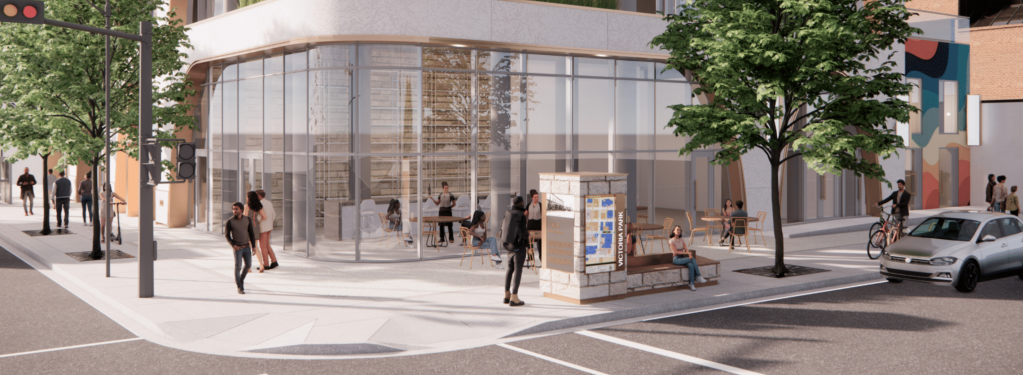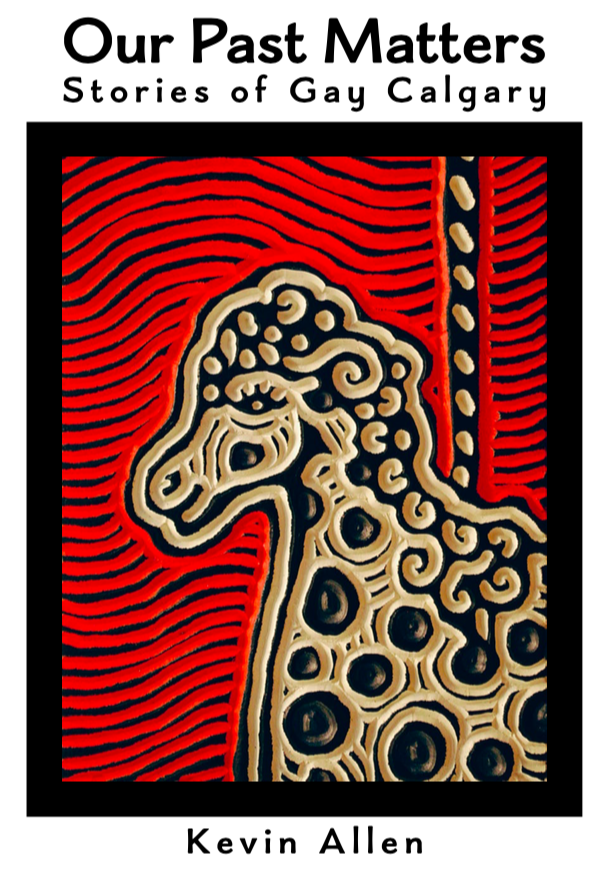The Backlot, a historic Calgary gay bar, will be moving (again). Founded in 1976, its current and third incarnation at 10th Avenue and 1st Street was established in 1996. However, the City has approved this site for redevelopment despite organized resistance last year called “Save Our Backlot.”
Interestingly, the developer is keen to acknowledge the history of the site—both its contemporary importance to the queer community as well as its location in Calgary’s second Chinatown from 1901-1910.
The queer history commemoration proposal (Brief) includes a commissioned mural at the site of the Backlot and an information panel and wayfinding bench.

Senior Urban Planner Zack Hoefs is looking for community feedback through a survey.
He writes:
On behalf of Truman Homes and in partnership with FAAS Architecture, I’m reaching out today to share an opportunity for discussion on a commissioned piece of art for a recently approved development called Gallery at 1001 1 ST SW and 209 10 AV SW.
The approved project involves redeveloping the Calgary Gas Co. Workshop building, which is significant to the Queer Calgarian community in its use as The Backlot and the significance of The Backlot’s name to Queer Calgarian history. There is a Brief that, on pages 16-17, outlines what our project team currently knows about the site from the perspective of Queer Calgarian History, links to documentation that we used in our research, and a description of the location of the art.
What we are missing in this work is valued feedback from the Queer Calgarian community and Backlot ownership on what they would like to see in this commissioned art. We are looking for your opinions and feedback! Our team will combine this feedback with the history we know to create a brief that future artists will interpret when bidding on the work. The main questions we will be asking are included in the Brief.
The survey will be available to complete until Friday, April 26.

{KA}














